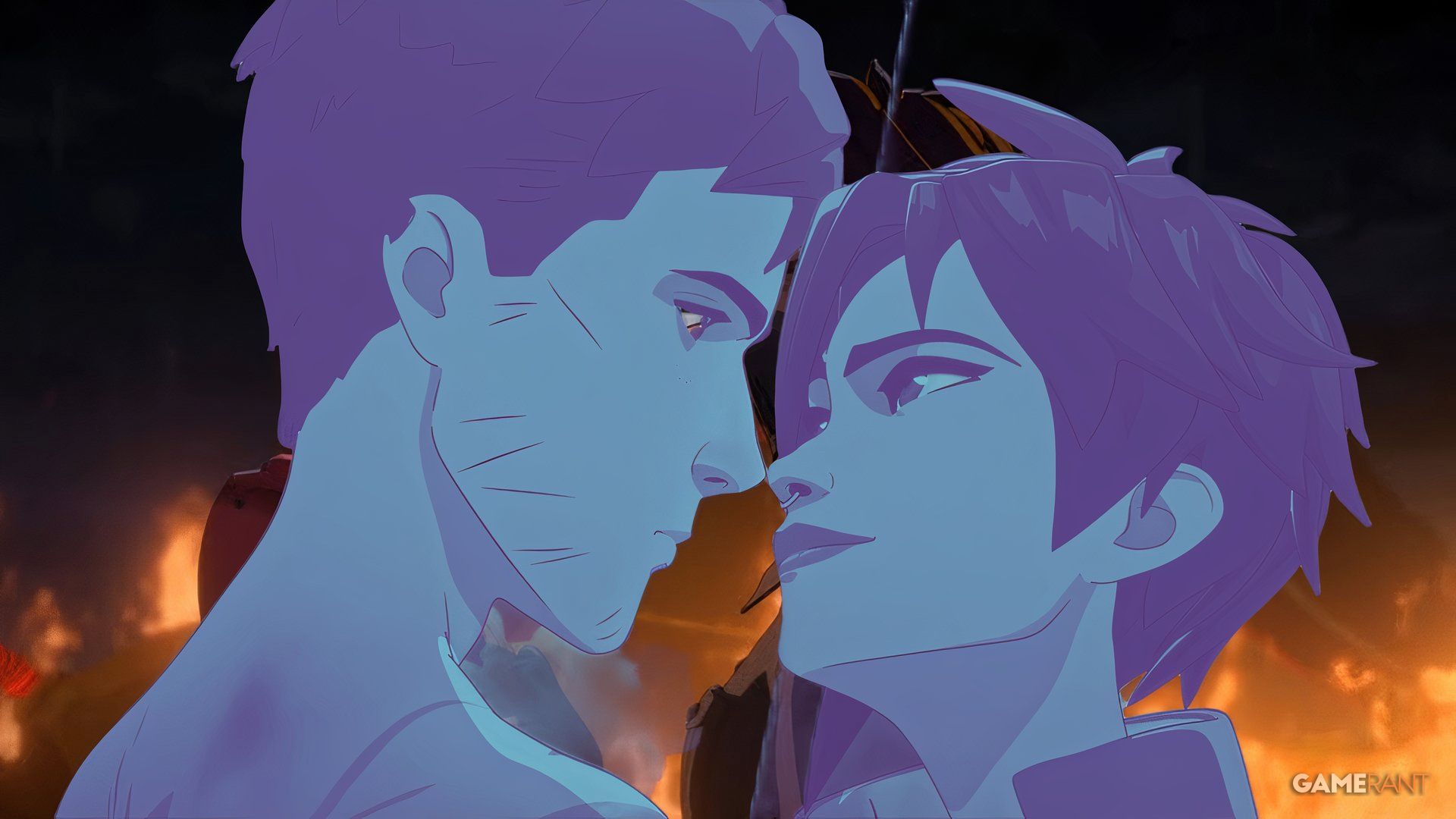
Spoilers for all Dispatch episodes ahead.
I’m drawn to games with compelling stories and characters, and Dispatch really delivered on that front. As Robert Robertson, I felt a strong responsibility to the people I was leading. Instead of seeing their initial hesitation as defiance, I understood it as a natural reaction to past disappointments. The game encouraged me to use everything I’ve learned about building trust and creating a safe environment – things like being vulnerable and acknowledging their pain. The characters in AdHoc Studios’ first game are very open about their struggles, and I felt like it was my job to support them in the way they needed.
Trust is a two-way street, but not everyone on the Z-Team was willing to meet me in the middle. Invisigal, in particular, made it difficult to build a connection. While others gradually started to open up, she became even more guarded. She’d answer questions with misleading statements, making every conversation feel like a warning sign rather than a step forward. I kept hoping she’d give me a reason to trust her, but as the pressure of Dispatch increased, she consistently undermined my progress. These warning signs didn’t just create tension—they actually led me down a path that only a small percentage of players—around 28%—ended up taking.
Dispatch’s Invisigal Started As An Underdog For Me
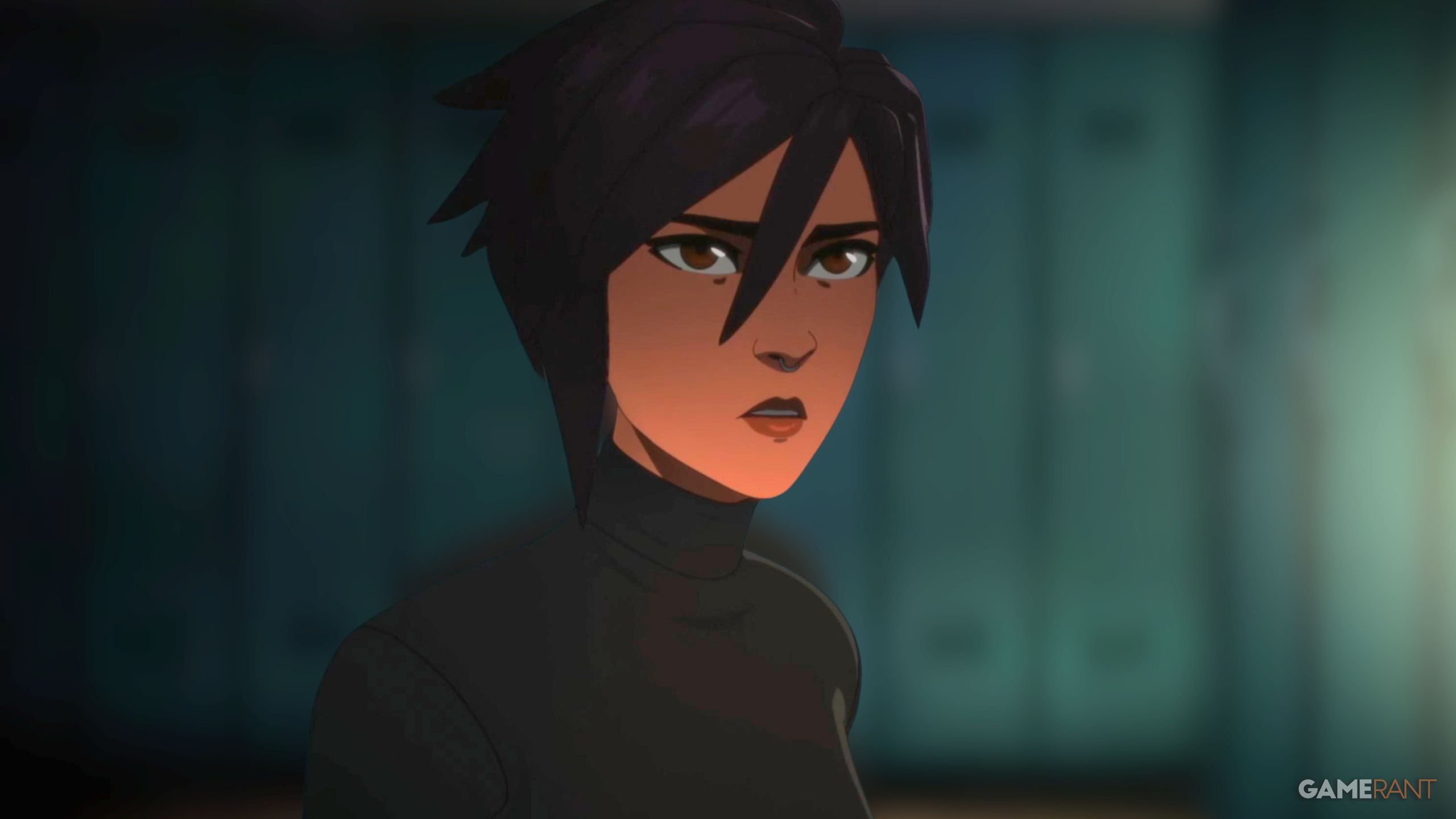
I instantly connected with the characters in Dispatch, especially the Z-Team. They’re all incredibly well-designed and memorable, with unique looks and personalities that fit their stories. I was particularly drawn to Invisigal – I wanted to love her from the start, and I had so many reasons to believe I would.
- Her design already tells a story: I knew Invisigal was a romance option before I started Dispatch, and even though I committed to a Blonde Blazer run early, the contrast between those two fascinated me. Blonde Blazer is framed as an ideal: strong, statuesque, beautiful, and reliably principled. Invisigal is her visual opposite—small, angular, and undeniably scrappy. But there’s something deeply endearing beneath that roughness. Her design suggests a woman who’s had to survive more than she should have, someone who learned to be sharp because softness wasn’t safe.
- The game wants you to care about her: It’s obvious that Invisigal was a writer’s room favorite. Her backstory, motivations, and major beats are handled with striking intentionality. When it’s her turn in the spotlight, Dispatch doesn’t just nudge you toward her. It stops the entire narrative and holds your attention there.
- Her powers are weirdly relatable: This may sound silly, but as a fellow severe asthmatic who has to carry an emergency inhaler everywhere, the idea that her invisibility only works if she holds her breath hits me right in the empathy. Characters with disabilities in gaming are already rare, so this small detail made her feel human in a deeply personal way.
Invisigal began as a truly captivating character – she looked great, had a compelling story, and felt vulnerable enough to make you really care about her. I immediately wanted to see her succeed.
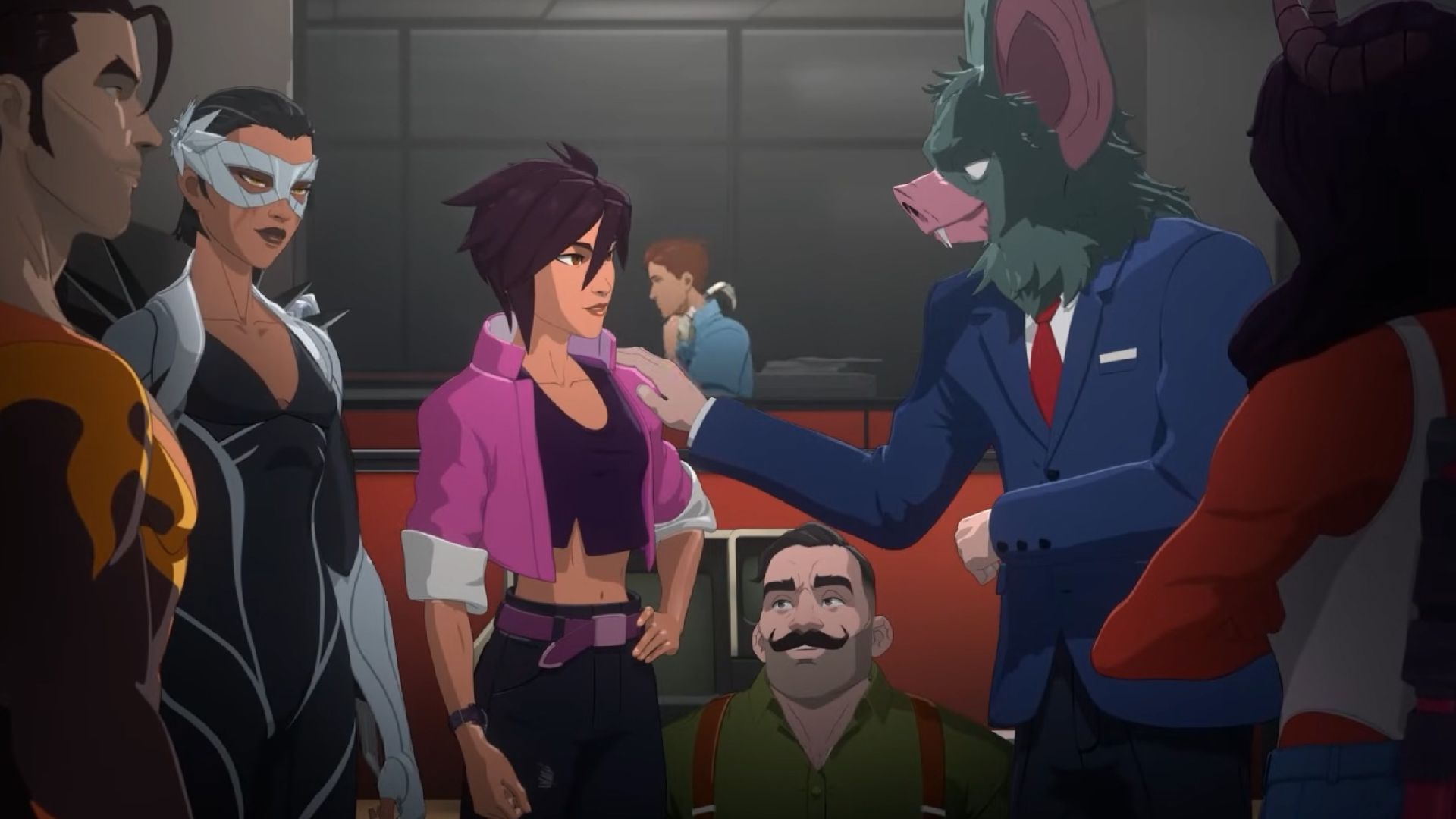
…And Then It All Went Downhill
Initially, I thought Invisigal simply needed time to develop, some independence, and guidance from someone who wouldn’t label her as problematic. However, as we continued working together, it became obvious there was a deeper issue. What started as understandable carelessness evolved into a pattern: she’d make a mistake, then withdraw, offer an excuse disguised as openness, and immediately follow any positive steps with a defensive remark.
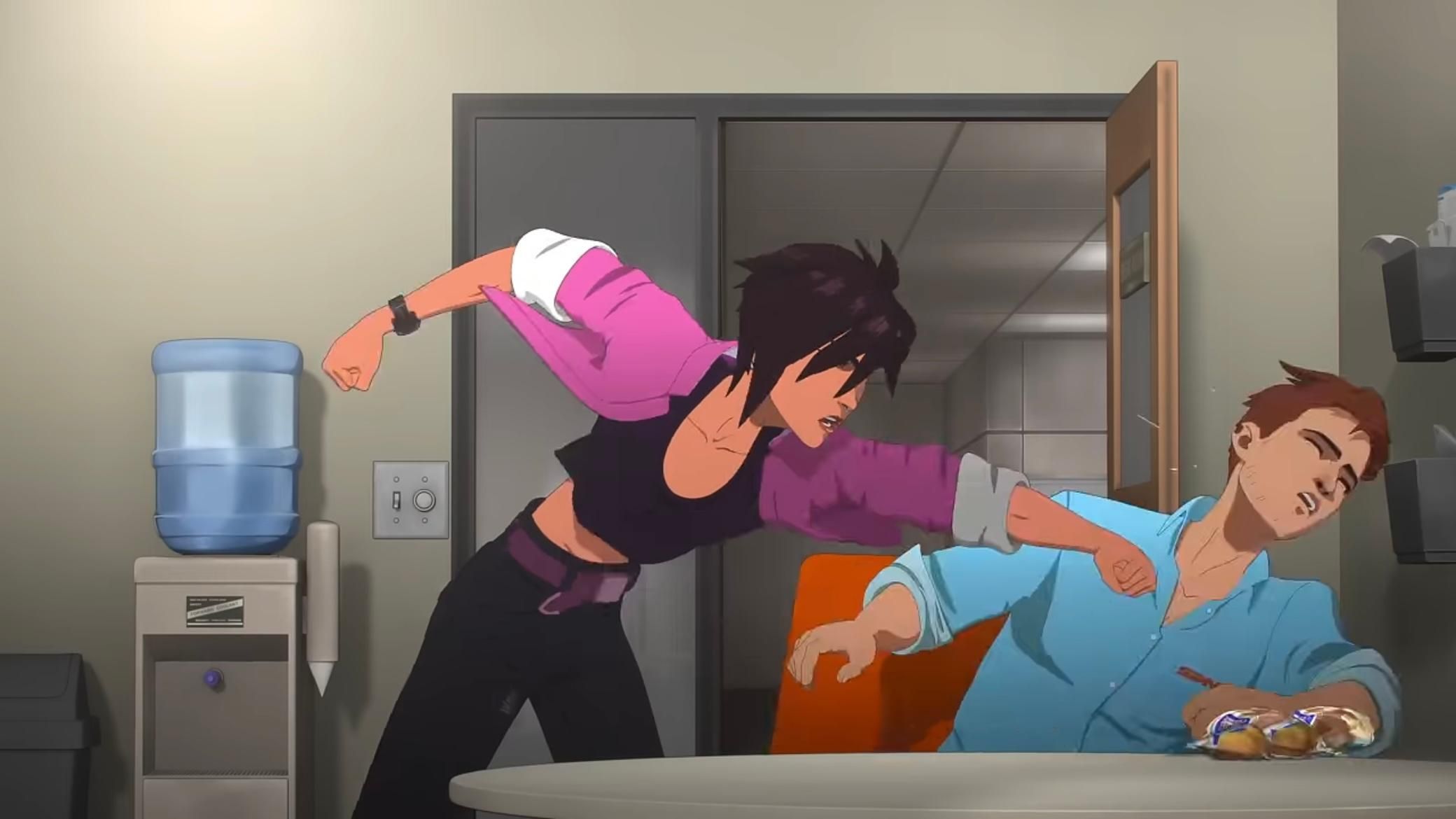
She wasn’t shallow at all – honestly, she had more going on beneath the surface than any of the other interesting people in Dispatch. But her behavior just wore me down. Every time I started to trust her, she’d push that trust, testing how far it would go. I’d try to rebuild our connection, and she’d act like she was still evaluating me. It got to the point where, between the little letdowns, the constant emotional ups and downs, and those moments of kindness that never really lasted, I realized I wasn’t actually building a real connection with her. I was just constantly trying to fix things after she’d broken them.
I Got Dispatch’s Bad Ending. And I Stand By It.
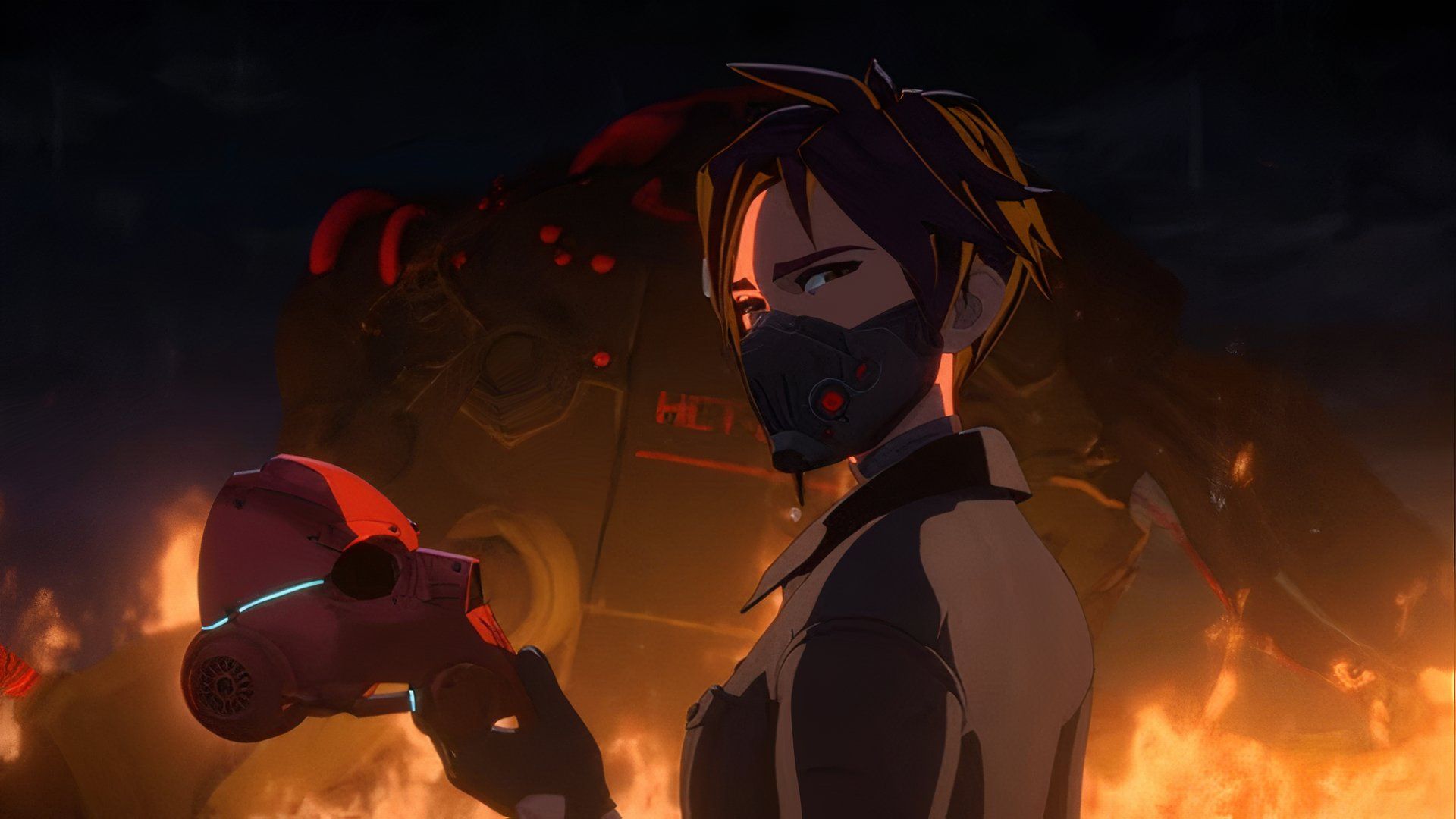
Why I Couldn’t Keep Forgiving Invisigal
- Constantly Undermining Orders: From the start, I understood that Dispatch wanted me to earn the Z-Team’s trust. The early insults and the relentless dragging of Robert were part of that growing pain, but even then, the team still followed through. They challenged Robert, not the mission. Invisigal, on the other hand, repeatedly took those challenges a step too far. The moment at Granny’s Donut Shop in Episode 2 was the first of many offenses. She followed her “gut,” and her gut led straight into an avoidable mess. It wasn’t rebellion with purpose; it was impulsivity without foresight, consistently putting others at risk.
- The Uncomfortable Sexual Tension: Dispatch is an HR violation simulator masquerading as a superhero game, and I fully accepted that when I committed to a Blonde Blazer romance run. That route has eyebrow raises, sure, but it’s messy because these things, well, happen in real life. Invisigal’s version of flirtation veered into crude, uncomfortable territory, especially following the dream sequence. Her comments often felt invasive rather than endearing, pushing past “messy realism” into behavior that genuinely read as inappropriate. She may be Dispatch’s most romanced character, but I couldn’t get past the tone of it all.
- Chase Deserved Better: Chase’s fate in Dispatch Episode 6 was the final fracture for me. I adore Chase. His hilarious dialogue, his friendship with Robert, and his willingness to put himself on the line made him an emotional backbone. When Invisigal’s recklessness backed him into a corner and he became the one in danger, it crossed a line I couldn’t uncross. Leadership means making choices that keep everyone safe—not prioritizing one unpredictable team member over another. If Chase hadn’t intervened, someone else would’ve been forced to. Invisigal didn’t just make a mistake; she made someone else pay for it.
- The Team Finally Said What I Was Thinking: By Episode 7, the rest of the Z-Team heroes reached their limit. I genuinely respected the unity of that moment. These misfits, who bicker and banter and undercut each other constantly, finally came together to say something real. Invisigal’s volatility wasn’t just inconvenient anymore; it was dangerous. Their reasoning was uncharacteristically serious. When they told me she had to go, I didn’t feel manipulated by the narrative. As a dispatcher, you can’t let one person become “special” at the cost of everyone else. The team saw that clearly, so did I.
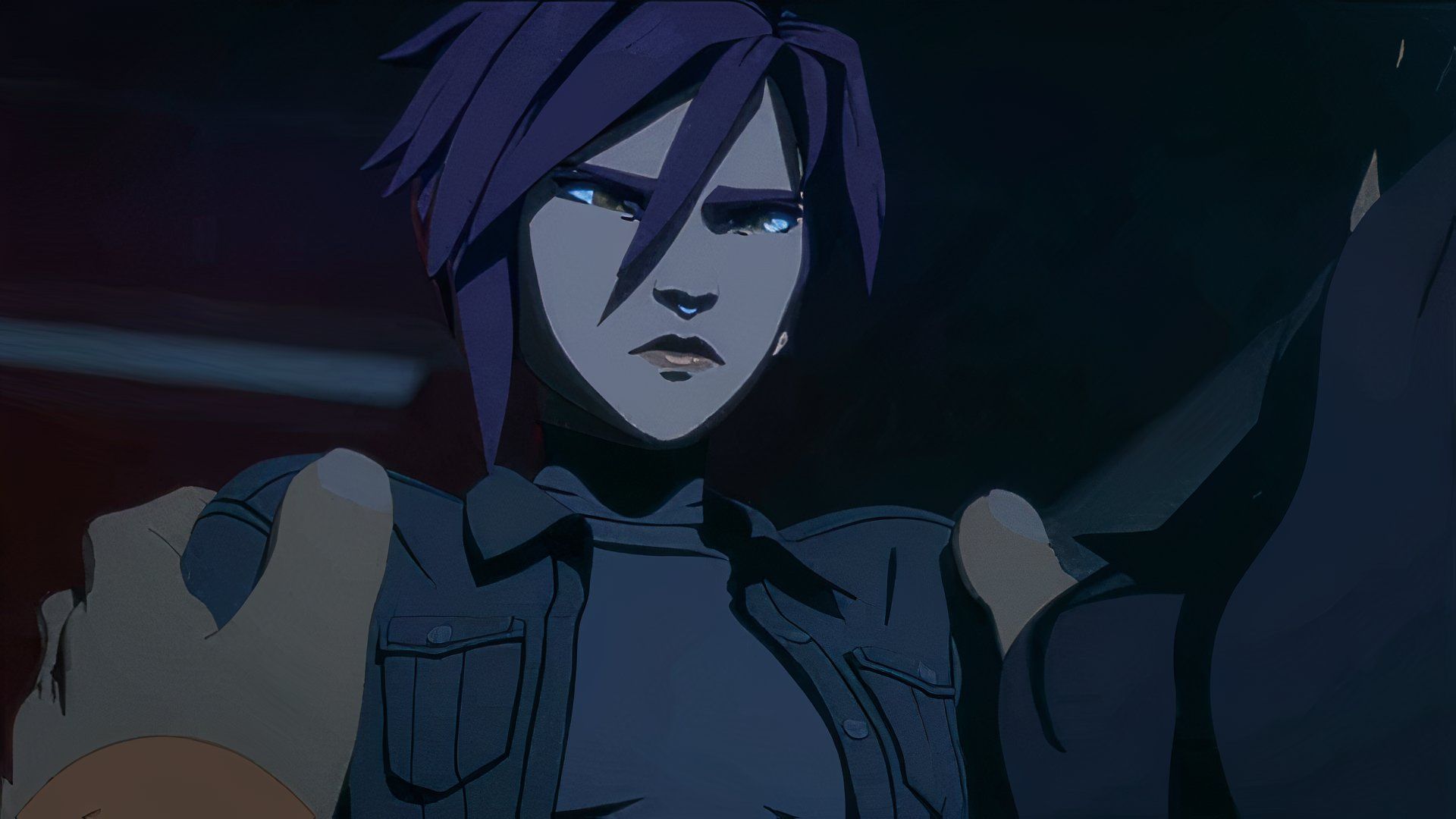
Why I Don’t Regret the Bad Ending
I was so surprised when I unlocked the ‘bad’ ending in Dispatch! It wasn’t frustrating or like I was being punished, though. It actually felt right – like a natural result of the decisions I made as I played, and it totally fit the story I was building. Honestly, it was really satisfying to see it all play out!
I don’t feel ashamed about getting a bad ending in the game – I see it as a natural part of the experience. It actually strengthened my appreciation for games that let you make meaningful choices and respond realistically to your emotions. In my playthrough of Invisigal, my character wasn’t meant to build trust, and the game didn’t force a happy outcome. Instead, it respected my choices and showed the consequences, even if those consequences were negative.
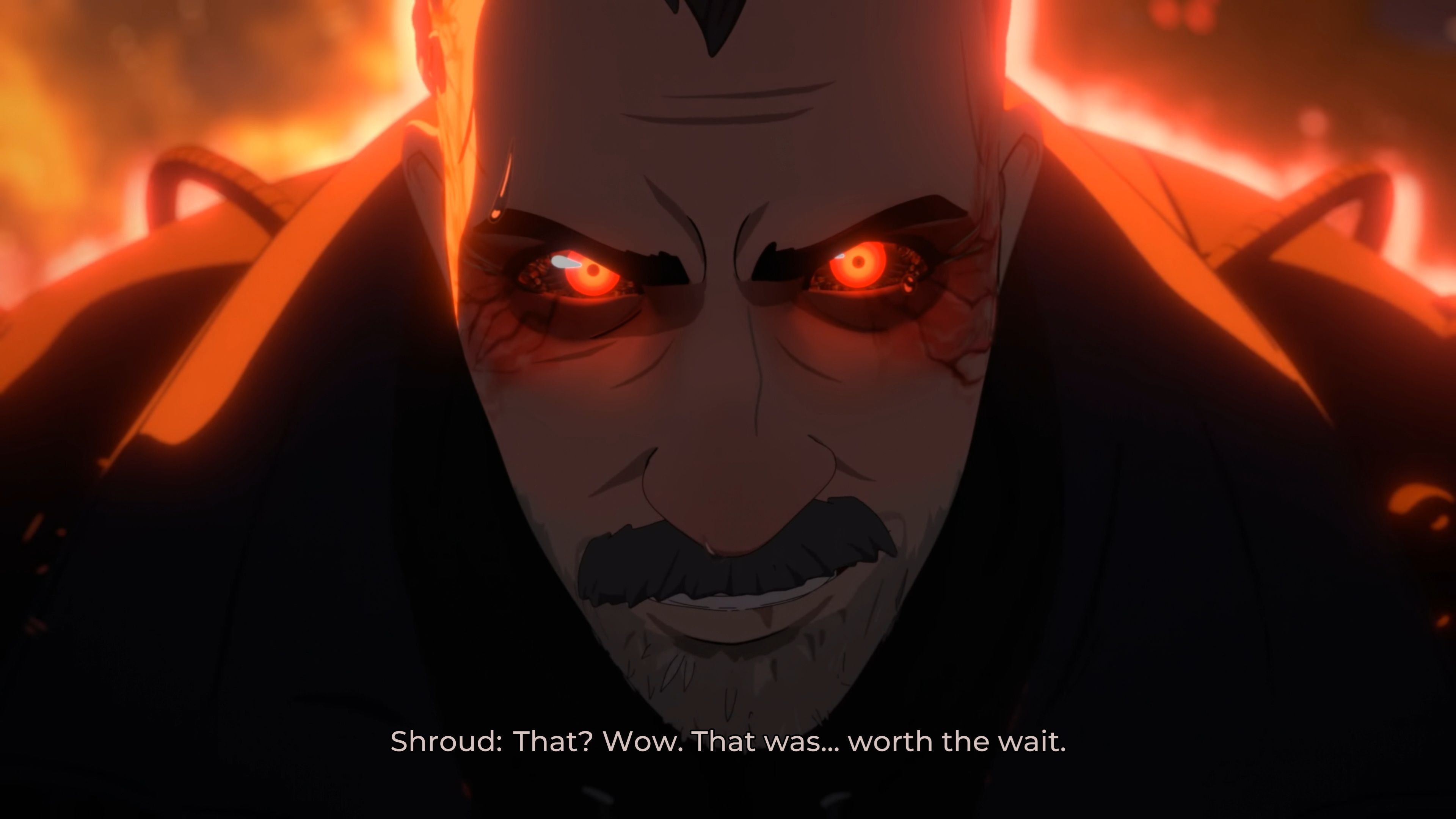
To be honest, this version of events is the most compelling – it’s complicated and messy, leaving many questions unanswered. It sets up exciting possibilities for a second season of Dispatch. I didn’t get a happy ending, but I got one that felt realistic, and I wouldn’t have it any other way.
Read More
- Poppy Playtime Chapter 5: Engineering Workshop Locker Keypad Code Guide
- Jujutsu Kaisen Modulo Chapter 23 Preview: Yuji And Maru End Cursed Spirits
- God Of War: Sons Of Sparta – Interactive Map
- Who Is the Information Broker in The Sims 4?
- 8 One Piece Characters Who Deserved Better Endings
- Poppy Playtime 5: Battery Locations & Locker Code for Huggy Escape Room
- Pressure Hand Locker Code in Poppy Playtime: Chapter 5
- Poppy Playtime Chapter 5: Emoji Keypad Code in Conditioning
- Why Aave is Making Waves with $1B in Tokenized Assets – You Won’t Believe This!
- Engineering Power Puzzle Solution in Poppy Playtime: Chapter 5
2025-11-26 01:06